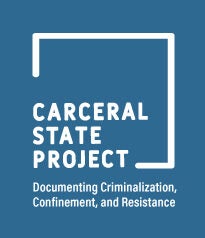The Policing and Social Justice HistoryLab is a research collaboration to investigate the history of policing and criminalization in the city of Detroit during the 20th and 21st centuries, document the politics of crime control and civil rights activism, and excavate and map police-civilian encounters including homicides, brutality, and misconduct. The PSJ Lab deploys student research teams to explore archives and databases, interview historical actors, and present their findings through multimedia digital exhibits and interactive maps. These investigations build on the efforts of historical activists and civil rights/civil liberties organizations that have long demanded civilian review boards and community control of law enforcement and criminal justice institutions-including police, prosecutors, courts, and jails–in Detroit and Wayne County. Through its public engagement mission, the Policing and Social Justice HistoryLab presents its findings for classroom use, for journalists and policymakers, and especially as resources for impacted communities and social justice-oriented organizations.

The Policing and Social Justice HistoryLab, as a partnership between Documenting Criminalization and Confinement and the U-M HistoryLabs program in the Department of History, operates through curricular and extracurricular components. Through the “Cold Cases” HistoryLab seminar, teams of undergraduates research specific periods of Detroit’s history, build document-rich website exhibits, and analyze patterns of police violence and misconduct through digital mapping. The PSJ Lab has produced two book-length exhibits thus far (linked below): Detroit Under Fire (1957-1973) and Crackdown (1974-1973, coming fall 2021), along with accompanying ArcGIS StoryMaps. As research fellows and interns, undergraduate and graduate student researchers also work on more specialized projects, including multimedia reports about specific incidents and themes, and synthetic maps designed to create an extensive database of policing killings in Detroit. The Policing and Social Justice HistoryLab is also documenting other aspects of the carceral state in Detroit, including the history of the Wayne County Jail, and in future years will launch projects about other parts of Michigan as well.
Research Publications

Detroit Under Fire documents 188 police homicides, hundreds more police brutality and misconduct incidents, and civil rights/black power activism in the city of Detroit from 1957-1973, demonstrating the centrality of campaigns against police brutality to the civil rights movement in the urban North. The book-length digital exhibit combines historical narrative and maps with more than 1,500 archival documents, photographs, and video clips–allowing audiences to explore original documents and multiple perspectives in depth. Published March 2021.

“What Happened to Cynthia Scott?” is a multimedia investigate report, building on the Detroit Under Fire website, of the police murder and coverup of a 24-year-old African American woman on July 5, 1963. The report utilizes the long-hidden DPD homicide file, obtained through the Freedom of Information Act, and other previously unknown archival documents. Also view the Detroit Writing Room’s panel discussion with“Seeking Justice for Cynthia Scott: Writing the Hidden History of Police Violence in Detroit” (Sept. 29, 2020).

“Barbara Jackson, Detroit 1964” is a multimedia investigative report of a 22-year-old Black woman’s quest for justice after white police officers viciously beat her following an arrest on prostitution charges. Jackson demanded an internal investigation by the Detroit Police Department, which covered up the incident, and then appealed to the newly established Michigan Civil Rights Commission. Her courage resulted in the commission’s first police brutality investigation, a long forgotten story that deserves to be remembered as a milestone for the civil rights movement in Detroit.

This multimedia investigative report documents the Detroit Police Department’s monthlong “crash program,” launched in Dec. 1960 to fight street crime after the deaths of two white women, resulting in the illegal arrests of around 1,500 African American males for suspicion of murder. The police department brutalized and tortured many of these innocent citizens, justifying its actions based on the alleged “Negro crime problem,” while civil rights organizations condemned Crash and demanded major reforms to protect the Black community from the systematic violation of constitutional rights and civil liberties. Drawn from the “Sweep the Streets: Implementing Crash” section of Detroit Under Fire.

Most accounts of law enforcement violence focus on what happens outside, on the streets, but police brutality inside precinct stations is also an extensive although difficult to document phenomenon. This multimedia investigative report highlights episodes and patterns of violence inside precinct stations based on complaints filed by ordinary African American citizens and documentation by political activists targeted for repression by the Detroit Police Department, along with a small number of cases in which officers who broke the “Blue Curtain” of police silence to report brutality then suffered retaliation. Drawn from the Detroit Under Fire exhibit.

A multimedia investigation of Black Power activism and the police-instigated ‘riot’ on the East Side of Detroit. The Detroit Police Department received national praise for preventing a riot by Black youth and radical activists in August 1966. This report reveals the origins of the unrest in the illegal police surveillance and systematic harassment of civil rights activists, especially a Black Power organization that mobilized to expose police racism and brutality. The Kercheval Incident exposed the hypocrisy of white liberal reformers in city government, who promised color-blind law enforcement but instead enhanced police militarization and racial profiling.

In May 1968, white officers in the Detroit Police Department launched a brutal mass assault on civil rights activists in the Poor People’s Campaign during a nonviolent march to demand racial and economic justice. The police department falsely blamed Black youth for provoking the encounter and covered up what really happened, leading to civil rights protests and the expansion of the anti-police brutality movement in Detroit. This multimedia investigative report is based on the internal documents and photographs compiled by civil rights organizations and agencies, including the U.S. Department of Justice, which exposed the police coverup but led to no consequences.

A multimedia investigation of the infamous New Bethel Incident of March 1969 when a dozen Detroit Police Department officers invaded the New Bethel Baptist Church, shot several people and brutalized many others, and made a mass arrest of 142 African Americans gathered for the national convention of the Republic of New Africa, a Black nationalist organization. This report documents the police repression, illegal DPD and FBI surveillance, murder conspiracy trials, and Black community protests that made the New Bethel Incident a major milestone in the history of modern Detroit.

This article provides an overview of 188 fatal police shootings and other major brutality incidents in Detroit between 1957-1973, and the patterns of coverup by the Detroit Police Department and Wayne County prosecutor, drawn from the Policing and Social Justice HistoryLab’s website exhibit Detroit Under Fire: Police Violence, Crime Politics, and the Struggle for Racial Justice in the Civil Rights Era. The DPD shot and killed more than 100 unarmed people during this time period, with young Black males fleeing alleged property crimes the largest category of homicides.

Danny Burton was wrongfully convicted of first-degree murder in 1987, sentenced to life in prison without parole, and finally exonerated in 2019. Homicide detectives in the Detroit Police Department tortured the 19-year-old to produce a false confession and also coerced multiple witnesses to lie in order to secure his conviction. This report is based on an interview with Danny Burton conducted by Sophie Mishara and additional research documents about the brutal treatment that he received as part of the punitive “war on crack” during the mid-to-late 1980s.

This investigative report illustrates the patterns of police violence against women by the Detroit Police Department between the 1950s and the 1990s. In addition to high-profile protests against police killings and beatings, the report documents recurring violence that resulted from everyday traffic stops and home invasions; retaliation against women who filed brutality complaints or sought to protect their sons and partners; systemic police violence as well as sexual assault against female sex workers; and frequent failure to respond to requests for assistance from poor Black women.

This multimedia investigative report examines the deadly and corrupt history of plainclothes and undercover policing in the city of Detroit. Plainclothes or off-duty officers in the Detroit Police Department shot and killed at least 96 people between the late 1950s and the early 1990s, around one-fourth of the known total of police-involved homicides. Plainclothes and undercover policing also facilitated high levels of corruption and criminality by law enforcement officers, especially in drug markets. “Cops or Robbers?” investigates the undercover STRESS decoy unit and other plainclothes operations that escalated in the 1970s and 1980s, finding that invisible policing heightens the risk of violence not only for the public but for police officers as well.


Crackdown documents police violence, misconduct, and criminalization of African American youth during the wars on crime and drugs from 1974-1993. The election of an African American mayor and the racial diversification of the Detroit Police Department raised hopes for law enforcement reform in the early 1970s, but the targeting of young Black males during the wars on gangs and drugs built on rather than broke with historical patterns of racialized violence. The digital exhibit combined historical narrative and maps with hundreds of archival documents, photographs, and video clips, allowing audiences to explore these events through an interactive multimedia experience.
Detroit Under Fire: Mapping Police Violence and Misconduct (1957-1973) Series
This five-part map series synthesizes the research findings and documented incidents of police violence and misconduct in the website exhibit Detroit Under Fire: Police Violence, Crime Politics, and the Struggle for Racial Justice in the Civil Rights Era. The five chronologically organized StoryMaps are designed for use in high school and college classrooms and provide an alternative, streamlined way to explore the main themes and key events covered in Detroit Under Fire.

Supplemental StoryMap for “Civil Rights and Police Brutality,” section I of Detroit Under Fire. This 11-part interactive map series (link here) allows viewers to explore police homicides of civilians, documented incidents of police brutality and misconduct, and major events that generated mass civil rights protests in the city of Detroit between 1957-1963.

Supplemental StoryMap for “Radicalization: Police Violence and Black Power,” section IV of Detroit Under Fire. This 13-part interactive map series (link here) allows viewers to explore police homicides of civilians, documented incidents of police brutality and misconduct, and illegal police surveillance and harassment of political radicals in the city of Detroit between 1968-1970.

Supplemental StoryMap for “Liberal War on Crime,” section II of Detroit Under Fire. This 11-part interactive map series (link here) allows viewers to explore police homicides of civilians, documented incidents of police brutality and misconduct, and police harassment of civil rights and black power organizations in the city of Detroit between 1964-1966.

Supplemental StoryMap for “STRESS and Radical Response,” Section V of Detroit Under Fire. This 11-part interactive map series (link here) allows viewers to explore 84 police homicides of civilians, documented instances of police brutality and misconduct, illegal police surveillance and drug corruption, and the notorious STRESS unit between 1971-1973.

Supplemental StoryMap for “Uprising and Occupation (1967),” section III of Detroit Under Fire. This 6-part interactive map series (link here) allows viewers to explore 47 fatalities, most at the hands of law enforcement, during the Detroit Uprising of 1967, in addition to other police brutality incidents documented by the NAACP and the office of U.S. Rep. John Conyers.
Project Team

Matt Lassiter
Professor of History, Carceral State Project co-director, DCCR co-PI, Director Policing and Social Justice HistoryLab. Matt Lassiter, the co-PI of Documenting Criminalization, Confinement, and Resistance, is a scholar of the twentieth-century United States with a research and teaching focus on political history, urban/suburban studies, racial and social inequality, and the history of policing and the carceral state. His most recent book, The Suburban Crisis: White America and the War on Drugs, was published in 2023 by Princeton University Press. He has led undergraduate teams in the creation of seven book-length digital exhibits, including the DCC-affiliated projects Detroit Under Fire: Police Violence, Crime Politics, and the Struggle for Racial Justice in the Civil Rights Era (1957-1973) and Crackdown: Policing Detroit through the War on Crime, Drugs, and Youth (1974-1993).

Nicole Navarro
Ph.D. Student (History, completed 2023) and Graduate Supervisor Policing and Social Justice HistoryLab (2018-2023). Nicole Navarro’s dissertation research focuses on the urban and political history of policing, education, and housing in late-20th century Washington, D.C. through a comparative multiracial lens. She worked as the graduate supervisor for two digital exhibits produced by undergraduate HistoryLab students, Detroit Under Fire: Police Violence, Crime Politics, and the Struggle for Racial Justice in the Civil Rights Era (1957-1973) and Crackdown: Policing Detroit through the War on Crime, Drugs, and Youth (1974-1993). Navarro is also co-author of the forthcoming website Detroit Deadly Force.

Lloyd Simpson
Ph.D. student (History) Lloyd is a Ph.D. student in the Department of History at the University of Michigan and a 2021 graduate of Wayne State University, where he majored in African American Studies (AAS) with a minor in History. His research focus includes Black Marxism, labor history, and the Black Freedom Struggle. He is specifically interested in understanding the function of police as an extension of state power. Lloyd is also a member of Detroit Will Breathe, a radical direct action organization that grew out of the mass movement that took form in the wake George Floyd’s murder.

David Helps
Ph.D. Student (History). David Helps’s research and teaching focus on U.S. history since the 1960s, with an emphasis on policing, urban politics, migration, and political economy. His dissertation will cover the relationship between policing and multiculturalism in global Los Angeles between the 1970s and the Rodney King rebellion. He has written on the future of policing and economic justice in Detroit for the Cleveland Review of Books and Detroit Metro-Times.

Francesca Ferrara
JD Candidate, U-M Law School. Francesca Ferrara is from Bloomfield Hills, Michigan, and is passionate about the history of civil rights in Detroit from a legal perspective. She took the lead role in creating StoryMap exhibits on the Kercheval Incident of 1966 and the New Bethel Incident of 1969, based on sections of “Detroit Under Fire: Police Violence, Crime Politics, and the Struggle for Racial Justice in the Civil Rights Era.”
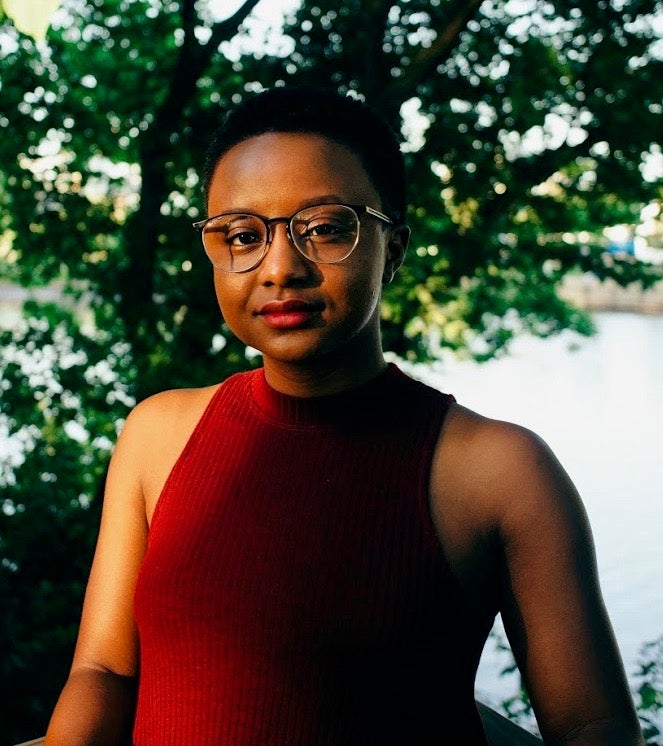
Mix Mann
Ph.D. Student (History). Mix Mann is a graduate student in history studying the intersections of race, gender, sexuality, class, and policing in the Americas. They studies black queer and trans people and their journeys through social systems to make insights on urban landscapes. Mix’s current project follows the life of Detroit’s famous 101-year-old black lesbian, Ruth Ellis, to analyze the history of black queer social spaces. Mix uses they/them/theirs pronouns.

Brianna Wells
Undergraduate Student (Public Policy). Brianna Wells is from Lansing, Michigan, and graduated in May 2020 with a B.A. in Public Policy from the Ford School with a minor in Gender and Health. She has conducted archival research into the history of policing in Detroit during the 1970s, especially around issues of gendered violence and narcotics corruption, and is a major contributor to “Crackdown: Policing Detroit through the War on Drugs, Crime, and Youth.” Brianna is passionate about elevating the histories of marginalized peoples, as well as understanding how these stories can inform public policy, and plans to eventually pursue a Ph.D. in a related field.

Zev Miklethun
Undergraduate Student (History). Zev Miklethun is from Ann Arbor, Michigan, and a research associate with the Policing and Social Justice HistoryLab. He was a member of the team that created the Crackdown website, covering the Detroit Police Department during the 1974-1993 period, and has contributed to the broader project to identify and analyze police-involved fatalities in Detroit during the 20th century.
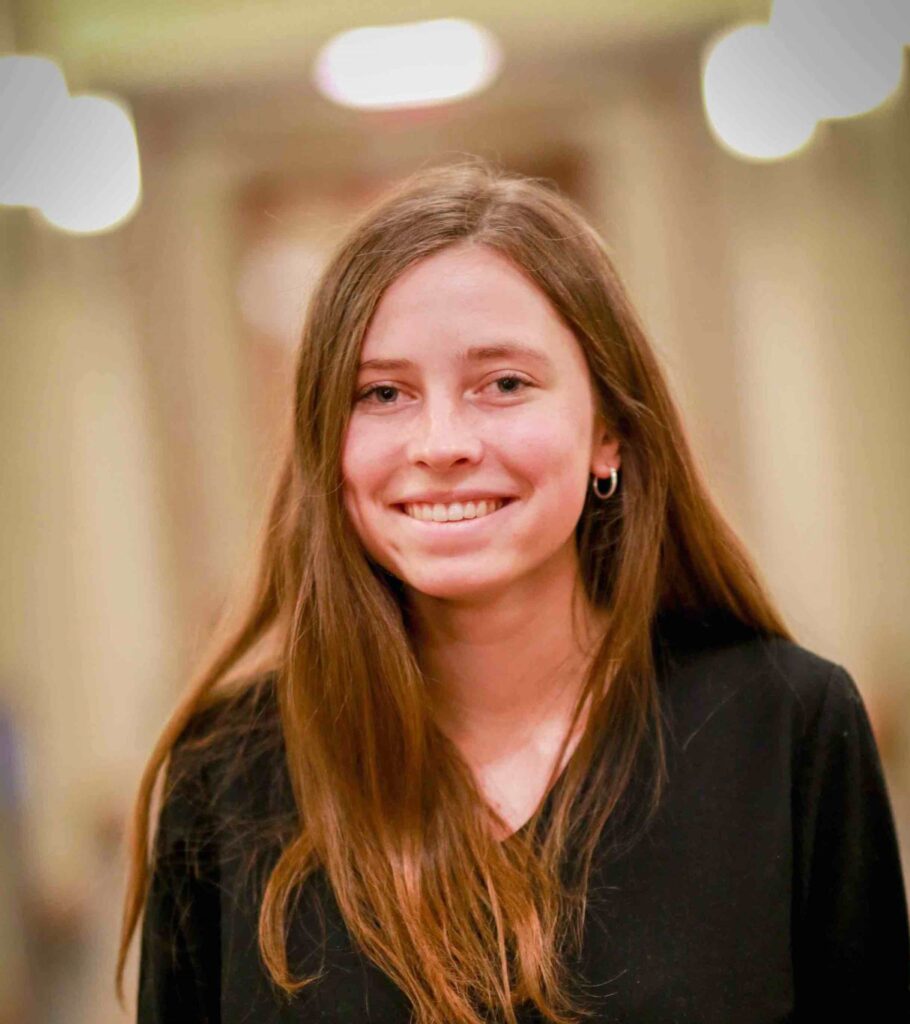
Maddie Turner
Undergraduate Student (Political Science). Maddie Turner is from Walnut Creek, California, and is majoring in Political Science and minoring in History of Law and Policy. She is interested in criminal justice reform and the relationship between the carceral state and racial and economic inequalities. She currently serves as co-chair of the social justice committee of College Democrats. After graduation, she plans to work in the nonprofit sector before attending law school.

Lily Johnston
Undergraduate Student (Biopsychology, Cognition, Neuroscience). Lily Johnston is a senior from Bloomfield Hills, Michiga,n majoring in Biopsychology, Cognition, and Neuroscience and minoring in History of Law and Policy. She is interested in the intersections of history and public health, specifically the ways in which social and political systems have perpetuated inequality and injustice in healthcare. After graduation, she plans to pursue a Masters of Public Health with a focus in health policy. Lily was also a member of Fall 2019 Policing and Social Justice HistoryLab team that produced Crackdown: Policing Detroit through the War on Crime, Drugs, and Youth.

Sophie Mishara
Undergraduate Student (Public Policy). Sophie Mishara is from Boston, Massachusetts, and is studying Economic Development and Human Rights Policy at the Ford School of Public Policy and minoring in Law, Justice and Social Change. Sophie has compiled evidence from civil rights and exoneration databases and has inventoried a wide range of cases in Detroit from the late 1960s to the present. She is passionate about working to reform the criminal justice system and through her research hopes to address injustices embedded within Detroit’s legal systems and thereby lessen their impact on underrepresented populations.

Grace Bergeron
Undergraduate Student (History). Grace Bergeron is from Allen Park, Michigan, and is majoring in History and minoring in Urban Studies. As part of the Policing and Social Justice HistoryLab, Grace has done archival research about police brutality, housing injustice, race relations, and labor union activity during the period of World War Two, with an emphasis on the 1943 Race Riot in Detroit. Inspired mostly by her research about labor unions and social justice, Grace plans to pursue a career of labor organizing after graduation.

Charlotte Fater
Undergraduate Student (Anthropology/Museum Studies). Charlie Fater is from Elkhart, Indiana, and is majoring in Sociocultural Anthropology and minoring in Museum Studies. As part of the Policing and Social Justice HistoryLab, Charlie has done archival research regarding policing and social justice in Detroit during the period surrounding WWII, especially regarding the role of police or their absence at labor strikes. Charlie plans to pursue careers in libraries and museums and is especially passionate about the democratization of information in these institutions, as well as repatriation and relationships with indigenous communities affected by collections.
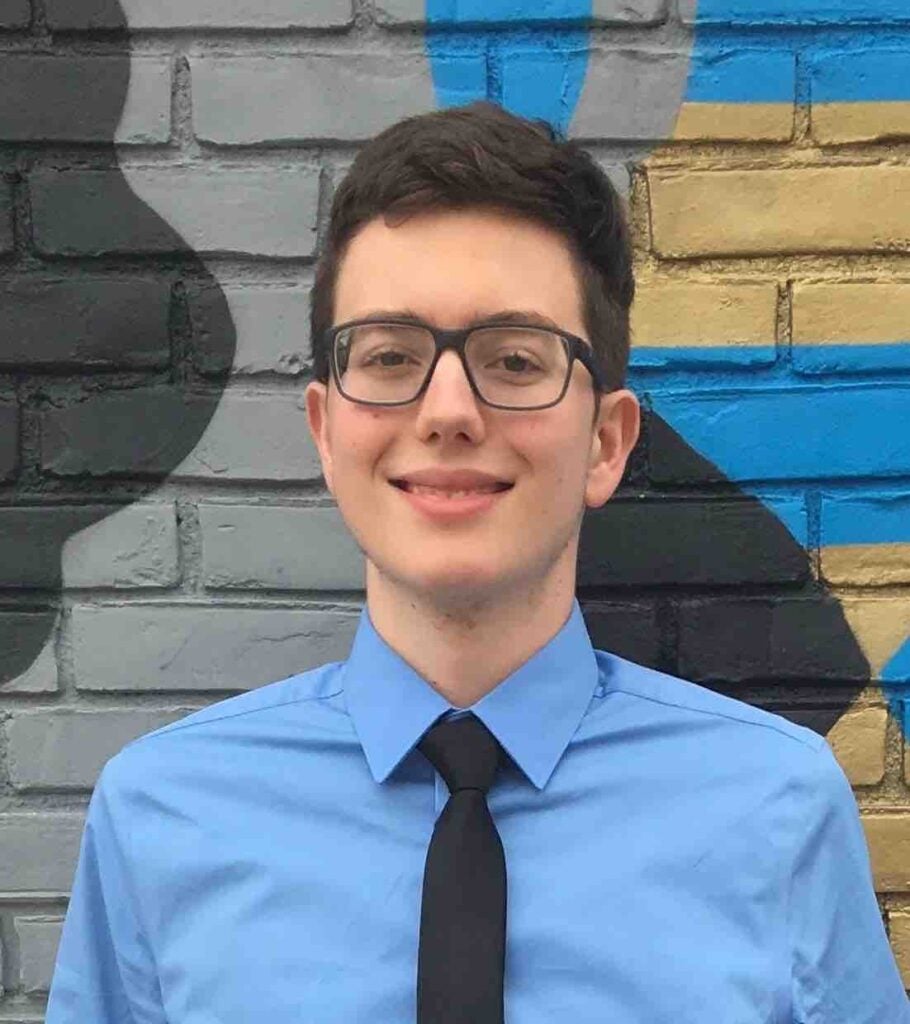
Dominic Coschino
Graduate Student (Public Policy). Dominic Coschino is from Roseville, Michigan, and graduated from the University of Michigan in 2019 with a double major in History and Political Science before entering the Ford School to study public policy. He was a member of the original Detroit Under Fire team for the Policing and Social Justice HistoryLab and is now a research associate with the Conditions of Confinement team. Dom wrote his senior honors thesis on the class-action litigation against the Wayne County Jail in the late 1960s and early 1970s and then created a StoryMap and infographics about this case for the DCC project. He believes in using law and policy to empower disaffected communities and dismantle the carceral state.

Izzie Kenhard
Undergraduate Student (History). Izzie Kenhard is a senior from Northampton, England, and is majoring in History and minoring in Crime and Justice. She is interested in studying crime and law enforcement policies as well as the relationship between gender and crime. Izzie is writing an honors thesis about the Detroit Police Department and sexual violence during the 1970s and 1980s and was a member of the Fall 2019 Policing and Social Justice HistoryLab team that produced Crackdown: Policing Detroit through the War on Crime, Drugs, and Youth.
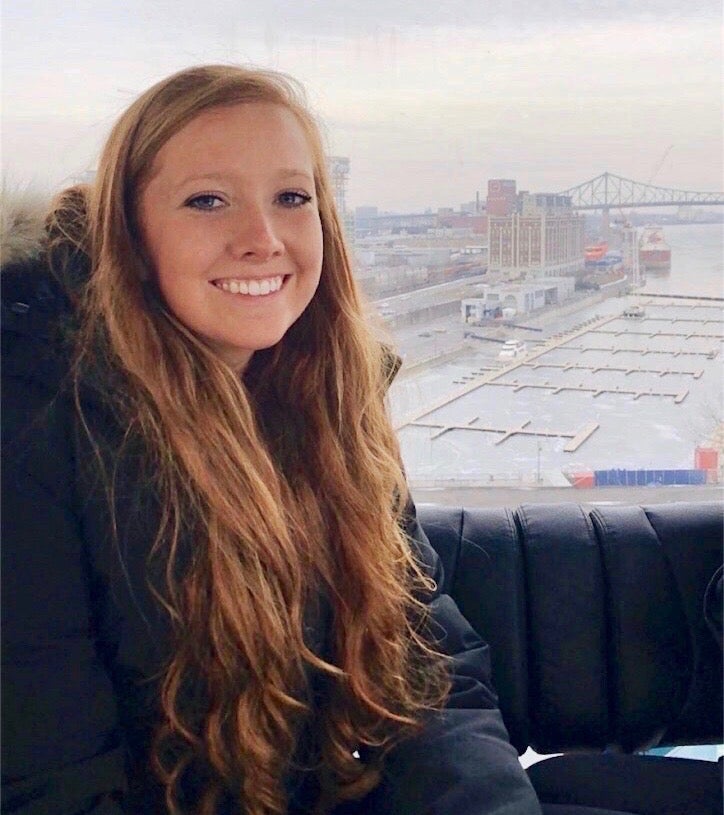
Sam Lauten
Sam Lauten is a senior from Boston, MA. She is majoring in English with a minor in History. She is passionate about prisoners’ rights advocacy and plans to attend law school after graduation.

Caroline Levine
Undergraduate Student (Psychology/History). Caroline Levine is from Westchester, New York, and is majoring in Psychology and minoring in History. She has conducted archival research to identify deaths of Detroit residents at the hands of the Detroit Police Department from 1957 to 1993 and created multimedia reports about the history of race and policing in Detroit. Caroline plans to pursue a career in the legal field with interests in criminal and entertainment law.
“Detroit Under Fire” Full Project Team (2018-2019)

“Crackdown” Full Project Team (2019-2020)

